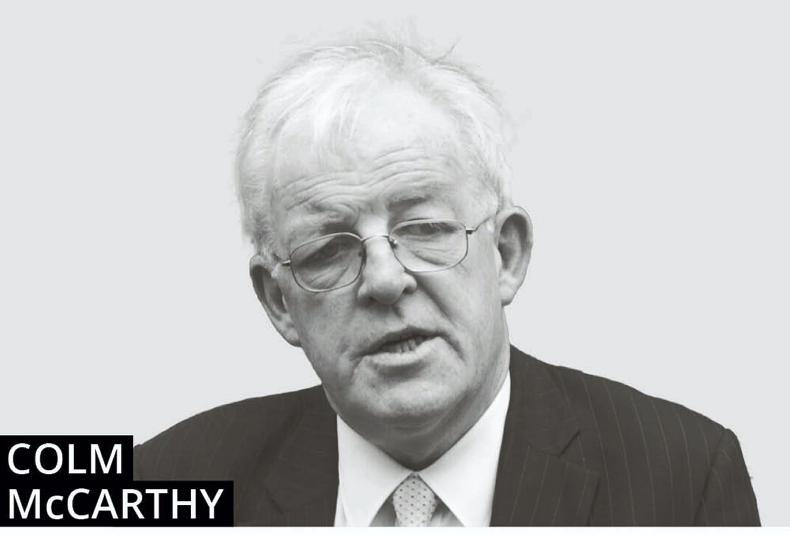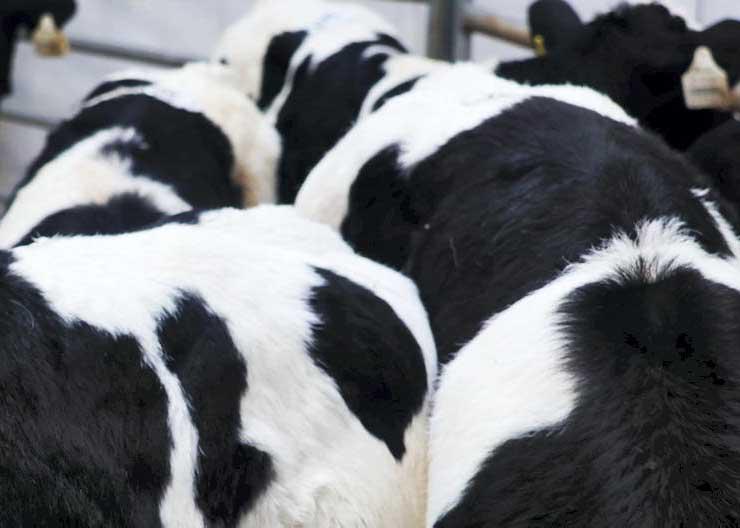Some of Britain’s popular media have been feeding a fable to the gullible about the early days of full Brexit. Britain has been out of the customs union and the single market since 1 January and there has been serious disruption to trade. The fable is that the paperwork delays reflect “new rules” dreamt up by Brussels bureaucrats to punish Britain for leaving the EU.
No new rules
There are no new rules. A third country can choose to be part of the single market – as Norway has done – avoiding non-tariff barriers, or can align with the customs union, as Turkey has done. Switzerland, another nearby non-member, has a series of agreements which allow business to enjoy many of the benefits of both. But the UK chose to eschew these options, the government of Boris Johnson preferring a hard Brexit in the form of a free-trade agreement (FTA).
This avoids tariffs and quotas on most goods, but does not include exemption from food safety checks, for example. This is because the UK government did not seek a deal comprehensive enough to embrace such exemptions. It could not do so without surrendering “sovereignty” through adherence to standards agreed jointly by the EU governments and subject to oversight by the European Court.
Difficulties
The difficulties that have arisen were entirely predictable and mean that British and EU firms can no longer trade goods as readily as before, even though tariffs have largely been avoided. Unless provided for in the FTA, an EU exporter must deal with Britain on the same basis as any third country, say with Russia or Brazil. No new rules applying exclusively to Britain have been dreamt up by anybody and the FTA was sought, negotiated and signed by the UK government.
[...] the non-tariff barriers, including customs checks and compliance with safety standards, are a permanent feature of the path the UK has chosen
A more plausible variation on the theme, but also misleading, is the notion that the difficulties of the first few weeks of full Brexit are teething problems, and that a learning curve will be ascended in due course. Frictions will then disappear through some mysterious, undisclosed process.
But the non-tariff barriers, including customs checks and compliance with safety standards, are a permanent feature of the path the UK has chosen, not a bug to be ironed out. Leo Varadkar, the business minister as well as Tánaiste, explained it well last week.
He said trade has become more complicated and “involves checks and paperwork. There is no fix to that. There is no workaround. There is no set of easements or light-touch regulations that gets around that.”
Exclusion
The Brexit bad news has thus far been mostly about lorries and trade in goods, but that is beginning to change. The UK is a major exporter of services, not just in finance but also in professions like law and accounting, media and creative industries. These sectors face a slow-burning exclusion, consequent on quitting the single market – the avoidance of tariffs through the FTA does not help them since there are no tariffs anyway. Access to parts of the market will simply disappear altogether. Some companies, for example, will no longer be entitled to bid for public procurement contracts, confined to EU-based firms. An early casualty has been the music industry – some popular UK bands will no longer be able to tour so easily in Europe.
Television news bulletins have included anguished Scottish fish exporters surprised that their continental shellfish market is no longer available
They are mystified at the prominence accorded to the miniscule fishing industry in the UK’s negotiating strategy – the music business is roughly four times the size of fishing when measured by turnover. There will be many more examples as the service sector recovers from the COVID-19 epidemic – lockdown is masking the impact of Brexit.
Even though the FTA runs to 1,200 pages, it is remarkable that representatives of so many UK trade associations appear not to have understood the limits to what it could deliver. Television news bulletins have included anguished Scottish fish exporters surprised that their continental shellfish market is no longer available. Some of these people campaigned, not just for a Leave vote in 2016, but for a hard Brexit subsequently.
Fiction of frictionless trade
Throughout Theresa May’s tenure in Downing Street, the Brexiteers proclaimed a commitment to “frictionless trade” with Europe, having denied during the referendum that there would be any economic damage if Britain voted to leave. For a non-member to enjoy frictionless trade would have meant signing up to something like the Norway arrangement, too close to the EU orbit and offensive to sovereignty enthusiasts.
The impossible trifecta of Brexit is:
Quit the single market. Quit the customs union. Enjoy frictionless trade. It cannot be done and it was naïve to believe that it could. Human sympathy for people whose businesses face crippling losses must be tempered by the realisation that many of them, inexplicably, courted the outcome which has befallen them.
Some of Britain’s popular media have been feeding a fable to the gullible about the early days of full Brexit. Britain has been out of the customs union and the single market since 1 January and there has been serious disruption to trade. The fable is that the paperwork delays reflect “new rules” dreamt up by Brussels bureaucrats to punish Britain for leaving the EU.
No new rules
There are no new rules. A third country can choose to be part of the single market – as Norway has done – avoiding non-tariff barriers, or can align with the customs union, as Turkey has done. Switzerland, another nearby non-member, has a series of agreements which allow business to enjoy many of the benefits of both. But the UK chose to eschew these options, the government of Boris Johnson preferring a hard Brexit in the form of a free-trade agreement (FTA).
This avoids tariffs and quotas on most goods, but does not include exemption from food safety checks, for example. This is because the UK government did not seek a deal comprehensive enough to embrace such exemptions. It could not do so without surrendering “sovereignty” through adherence to standards agreed jointly by the EU governments and subject to oversight by the European Court.
Difficulties
The difficulties that have arisen were entirely predictable and mean that British and EU firms can no longer trade goods as readily as before, even though tariffs have largely been avoided. Unless provided for in the FTA, an EU exporter must deal with Britain on the same basis as any third country, say with Russia or Brazil. No new rules applying exclusively to Britain have been dreamt up by anybody and the FTA was sought, negotiated and signed by the UK government.
[...] the non-tariff barriers, including customs checks and compliance with safety standards, are a permanent feature of the path the UK has chosen
A more plausible variation on the theme, but also misleading, is the notion that the difficulties of the first few weeks of full Brexit are teething problems, and that a learning curve will be ascended in due course. Frictions will then disappear through some mysterious, undisclosed process.
But the non-tariff barriers, including customs checks and compliance with safety standards, are a permanent feature of the path the UK has chosen, not a bug to be ironed out. Leo Varadkar, the business minister as well as Tánaiste, explained it well last week.
He said trade has become more complicated and “involves checks and paperwork. There is no fix to that. There is no workaround. There is no set of easements or light-touch regulations that gets around that.”
Exclusion
The Brexit bad news has thus far been mostly about lorries and trade in goods, but that is beginning to change. The UK is a major exporter of services, not just in finance but also in professions like law and accounting, media and creative industries. These sectors face a slow-burning exclusion, consequent on quitting the single market – the avoidance of tariffs through the FTA does not help them since there are no tariffs anyway. Access to parts of the market will simply disappear altogether. Some companies, for example, will no longer be entitled to bid for public procurement contracts, confined to EU-based firms. An early casualty has been the music industry – some popular UK bands will no longer be able to tour so easily in Europe.
Television news bulletins have included anguished Scottish fish exporters surprised that their continental shellfish market is no longer available
They are mystified at the prominence accorded to the miniscule fishing industry in the UK’s negotiating strategy – the music business is roughly four times the size of fishing when measured by turnover. There will be many more examples as the service sector recovers from the COVID-19 epidemic – lockdown is masking the impact of Brexit.
Even though the FTA runs to 1,200 pages, it is remarkable that representatives of so many UK trade associations appear not to have understood the limits to what it could deliver. Television news bulletins have included anguished Scottish fish exporters surprised that their continental shellfish market is no longer available. Some of these people campaigned, not just for a Leave vote in 2016, but for a hard Brexit subsequently.
Fiction of frictionless trade
Throughout Theresa May’s tenure in Downing Street, the Brexiteers proclaimed a commitment to “frictionless trade” with Europe, having denied during the referendum that there would be any economic damage if Britain voted to leave. For a non-member to enjoy frictionless trade would have meant signing up to something like the Norway arrangement, too close to the EU orbit and offensive to sovereignty enthusiasts.
The impossible trifecta of Brexit is:
Quit the single market. Quit the customs union. Enjoy frictionless trade. It cannot be done and it was naïve to believe that it could. Human sympathy for people whose businesses face crippling losses must be tempered by the realisation that many of them, inexplicably, courted the outcome which has befallen them.









SHARING OPTIONS